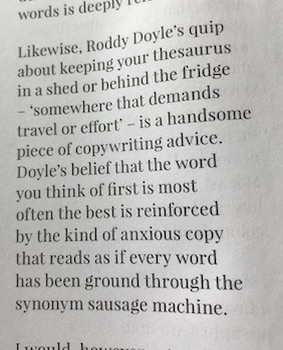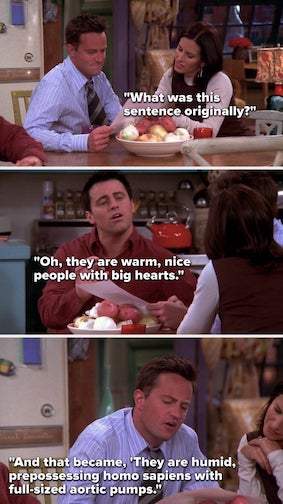At the moment, I feel like I’m taking part in a really intense, immersive copywriting course.
At any hour of the day I will suddenly be challenged to give a clear and simple definition of any word in the english language.

[Open my eyes in a morning] “WHAT ARE ISSUES?!”
[Sit down to eat] “WHAT’S PROOF?!”*
[Reversing into a tricky parking space] “WHAT DOES PRESSURE MEAN?!” **
But instead of being military-style training for my job, it’s actually just life with a four year old.
What’s a description?
What’s an engineer?
What does portion mean?
What’s commission? ***
What’s a procession?
In all honesty, it’s really good practice for explaining things clearly.
I love it!
I thoroughly recommend it for keeping your copywriting skills sharp.

Keep it simple
Not too long ago I was chatting to a new client about the importance of keeping things clear and simple.
He’s launching a very technical and complicated product, but that doesn’t mean the website text should be technical and complicated; in fact, quite the opposite.
The more jargon and buzzwords you use in your copy, the more you risk alienating potential customers.
You may know everything there is to know about manufacturing a left-flanged flux capaciteratrix, but your customer doesn’t need to.
They need to know what it is, and how it will make their life easier.
If you can explain what you do in terms that a child can understand, then your tone will automatically become friendlier and more accessible to everyone.
And rather than sounding too simplistic, it actually demonstrates that you really understand what you’re talking about. Much more so than hiding behind specialist industry language and corporate acronyms.
We’ve all seen politicians being interviewed and tying to wrangle complex language to get out of answering a tricky question. It erodes their credibility and makes it obvious that they don’t know the real answer.

Simple and straightforward language gives off an authoritative tone and encourages trust in your brand.
In ‘Copywriting Is’ Andrew Boulton advocates for giving the thesaurus a break and accepting that the word you think of first is most often the best:

I know I’ve mentioned ( this video ) before, but I still think it’s really clear and helpful advice: Vikki Ross suggests you should treat copywriting like a conversation, using “real words that real people really say.”

So it’s good advice for copywriting (and life) to just be clear and straightforward.
OK.
I’m off to answer more questions about what things mean.
Quite a… defining moment, if you will.
Sorry. Dreadful joke.
I’m just grateful to have moved two years past having to explain what’s inside the banana, inside the banana.
You can read more about his many (many) questions in this old blog post too.
____________________________________________________
*I told him that ‘proof’ is when you can show that something is true.
He was thoroughly dissatisfied with that answer, because it turned out he meant “proof like waterproof”
**Disney’s Encanto is to thank for ‘pressure’ and ‘issues’
***The Forestry Commission is responsible for the local woodland. (And Forest School area).